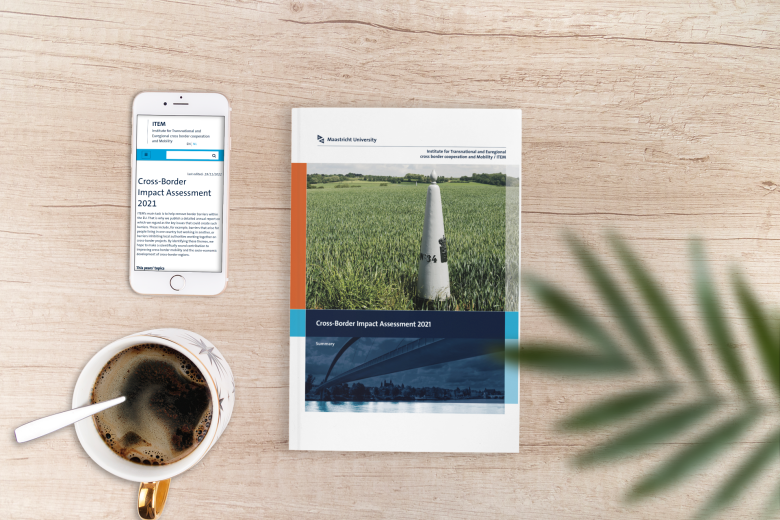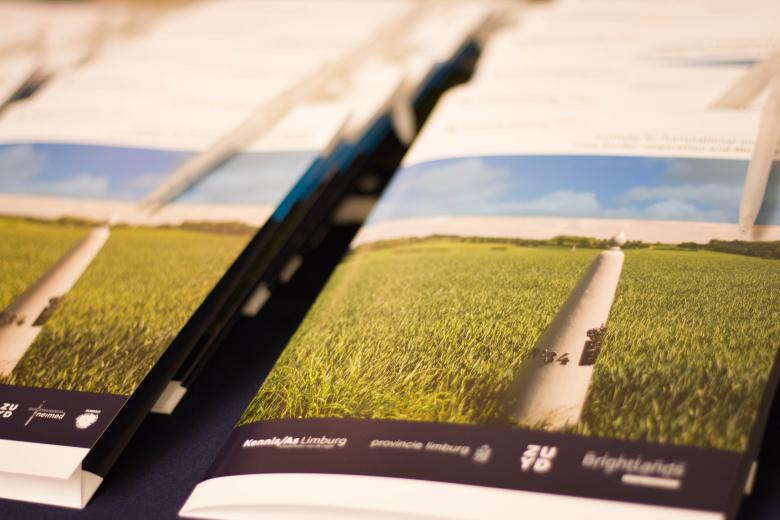New ITEM research project on multilingualism in the workplace
25 years ago, the birth act of the European Union was signed in Maastricht. A historical moment, which brought the capital of the Dutch province of Limburg international fame. Yet, Maastricht and Limburg could profit much more from ‘Europe’ than happens today. Language still forms an obstacle though. A new project from the research institute ITEM further explores this issue.
When you walk through the shopping streets of Maastricht, you can hear a big variety of languages. The proximity of the Belgian border makes the city attractive for Flemish and Walloon shoppers. And of course there is Maastricht University, where students from all over the world meet.
Yet for many inhabitants of Maastricht and the South Limburg region, it is no obvious choice still to study an entire degree programme in another country. Also when it comes to job-seeking, few people cross the Dutch border. It turns out that even for entrepreneurs, the border can still be a real obstacle sometimes.
Dutch appendix vs most European province
When you look at a map of Limburg, you can see this is problematic, as the province is locked in-between Belgium and Germany. It is no coincidence that Limburg is sometimes jokingly called ‘the appendix of the Netherlands’. Some proud Limburgers rather call it ‘the most European province of the Netherlands’. But when one looks at how important the national borders still are in this area, one wonders whether this observation is true.
Moreover, it is ironic that in Maastricht, the birthplace of the European Union and the euro, Geert Wilders’ PVV party was doing much better during the last general elections compared to the national average. This party, which supports a Dutch exit out of the EU and the Eurozone, may even get a better result during the upcoming general elections on March 15th.
More jobs and a higher salary
Still, Maastricht and Limburg, as typical border areas, may have much to win from ‘more Europe’. According to a publication from the Netherlands Bureau for Economic Policy Analysis, it would even be good for these areas when the borders are erased completely. In that case, the unemployment rates would be lower, whereas the average salary would become higher, according to the Bureau.
Policy makers are quite sensitive for such findings. Therefore, representatives from various layers of government have started an action committee, which aims at tackling the disadvantaged position of border regions in the Netherlands. Last week, the team presented a report to the Dutch government, in which they explain their plans.
Persistent obstacles
When one reads this report, one realises that borders do not just disappear though. Moreover, borders come in all forms and shapes. There are not just political-geographic borders, there are also linguistic and mental borders, and borders between different education and taxation systems. It often turns out that overcoming one such border is not sufficient. Enough reasons for potential students, employees and entrepreneurs to exclude the possibility of crossing a border a priori.
Various initiatives, including the so-called ‘Grensinfopunten’ (border information points), are supposed to make this crossing easier now. Also the University of Maastricht is actively involved in the ‘de-bordering’ of Limburg: the euroregional research institute ITEM produces much research on chances and hindrances for commuters.
New ITEM project: multilingualism in the border region
By now, ITEM has become known as a centre for legal expertise on commuting, including questions on the recognition of degree certificates and the question which laws from which country should be applied in which situation. At the same, people at ITEM realise that there is much more than just legal borders, and more borders have to be overcome before people become actual commuters.
For this reason, apart from its important legal pillar, ITEM also invests in research from other academic disciplines. The most recent example of this is a four-year research project on multilingualism in the Dutch-German border area, which Daan Hovens, a sociolinguistic scholar, has started with on January 1st.
Actual language use in the workplace
The focus of Daan’s research is on mixed Dutch-German workplaces in the Dutch province of Limburg and the neighbouring German federal state North Rhine-Westphalia. He does not only look at the language demands that new employees are facing, but also at which languages are actually used in the workplace. Within this context, you can think of communication in Dutch, German, English, a Limburgish dialect or a minority language, or of a combination of various languages.
Based on this research, Daan wants to see to what degree language forms an obstacle in Dutch-German workplaces, and how employees can best be prepared for daily practices in such places. Daan mainly focuses on employees with either a vocational degree or with no degree at all, and he is much interested in industrial and logistics companies. The reason for this is that most commuters may be found in these areas, while little research has been done so far in these sectors. And this seems necessary, as the position of the German language in the Netherlands is under pressure for several years already.
If you have questions or tips for Daan, please write to d.hovens@maastrichtuniversity.nl
Also read
-
ITEM Cross-Border Impact Assessment 2021 published
Due to the Corona crisis, also many cross-border workers are forced to work in their home country. They have been asked not to cross the border to come to their office situated in the neighbouring country. At the moment, this is only possible because the Dutch, Belgian and German governments have...
-
Announcement ITEM PhD Volume 'Beyond the refugee crisis'
The Institute for Transnational and Euregional cross border cooperation and Mobility (ITEM) published a PhD Volume about the refugree crisis. The volume was written by PhD candidates of ITEM and includes separate contributions in which each of them tackles the topic of the refugee crisis from their own...
-
Maarten Vink addresses Committee of the Regions of the EU
On 23 September 2016 professor Maarten Vink, Co-Director of MACIMIDE and a member of the ITEM Academic Office, addressed the Committee of the Regions of the European Union during the 10th Meeting of CIVEX in Oviedo, Spain.